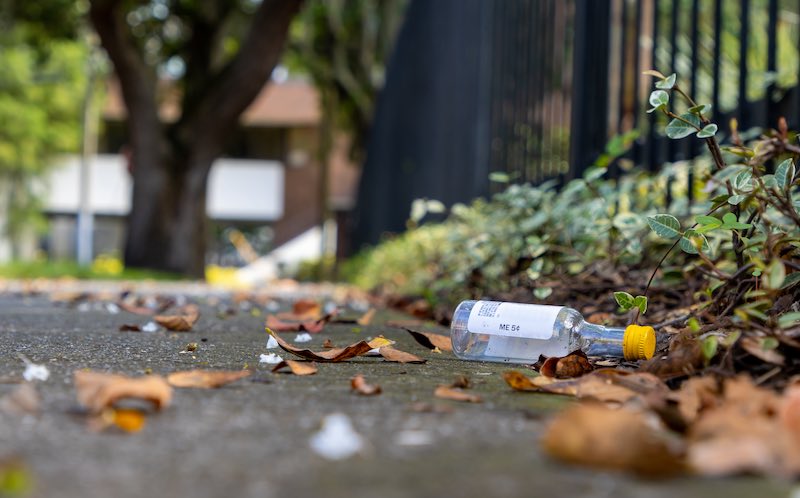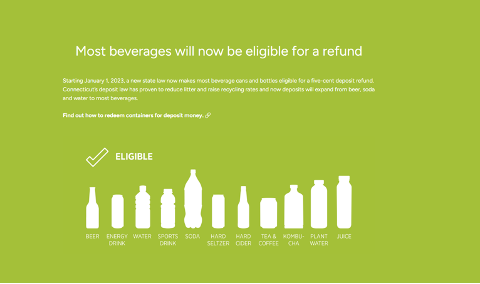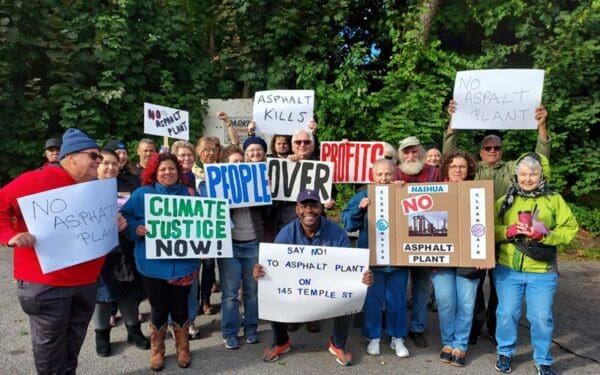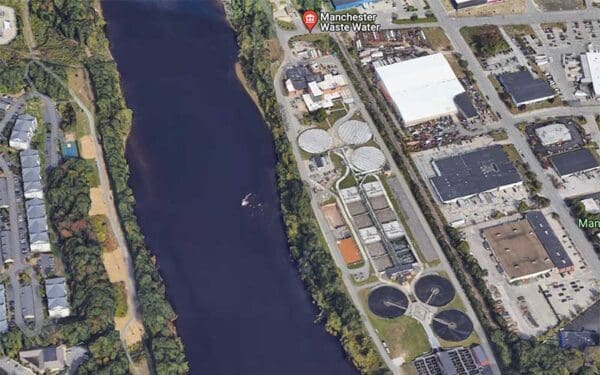
A change to Connecticut's bottle deposit law has been a setback for the state's recycling progress. Photo: Shutterstock
Connecticut just took a big step back in its commitment to recycling. In 2021, legislators voted to modernize and expand the state’s bottle return program by raising the deposit fee and making more types of beverage containers eligible. Last month, these same legislators inexplicably chose to weaken the program by approving a measure that will remove two popular container types from it altogether: spirit-based beverages and canned cocktails (that is, hard seltzers).
The measure, Senate Bill 895, was unpopular with the public. But can you guess who did support it? The beverage industry, of course, including Coke and Pepsi.
The change to the bill might seem small, but it will have a big impact. It means more beverage containers will end up burned in incinerators, buried in landfills, or littering our streets when they could have been recycled.
We cannot continue to kick the can down the road when it comes to keeping Connecticut on track towards a more sustainable (and litter-free) future. That’s why we will continue to advocate for changes to the law that will be transparent to the public and strengthen the state’s bottle return system.
The Hard Impact of Dropping Hard Seltzers
We know that bottle return laws work. They incentivize the collection and recycling of beverage containers, preventing litter, and keeping these containers out of landfills and incinerators. According to a study of the National Waste & Recycling Association, beverage container deposits can more than double the percentage of containers that get recycled. And, the more types of beverage containers included in a program, the more likely it is to achieve its recycling goals.
When Connecticut’s 2021 bill first passed, it included glass beer bottles, plastic soda and juice bottles, as well as canned hard seltzers, canned teas, and canned energy drinks.

It was a logical and more comprehensive approach to recycling. But somehow, that’s not what has ended up happening. The bill changed, despite broad public support.
In January 2023, CLF advocates observed the public hearing on Senate Bill 895 before the Connecticut General Assembly Environment Committee. We also reviewed the 30 comments that the Committee received from the public.
Only five comments supported the bill. These came from Coca-Cola Beverages Northeast, American Beverage Association, Hartford Distributors, Inc., Connecticut Beer Wholesalers Association, and Pepsi Cola of Bristol. Notably, only one of these commenters even mentioned the portion of the bill that redefined which beverage containers qualify for the deposit program. The other four weighed in on the details of implementing the law.
On the other hand, 25 commenters opposed the bill. The reasoning was sound: Exempting spirit-based beverages and canned cocktails from the redemption program “is not only confusing to consumers, but also moves the state in the wrong direction for waste management,” said one commenter.
Given the weight of public support against the bill, you could reasonably assume that Senate Bill 895 would not pass. But in early February, the narrowed definition of carbonated beverages appeared in an omnibus bill, sandwiched between funding for the state’s free school lunch program and a provision on the state’s budget fund reserve. This omnibus bill slid through the House and Senate and was signed into law by Governor Ned Lamont a few days later.
A Legislative Decision Littered with Problems
News coverage on this topic has speculated that Democrats traded passage of Senate Bill 895 for Republicans not delaying the confirmation process of Department of Energy and Environmental Protection Commissioner Katie Dykes. We can only guess what conversations happened behind closed doors.
Some people say that when you take two steps forward and one step back, you’re still making progress. When your path is littered with beverage containers that could easily be diverted from the waste stream, though, it may be harder to see the progress you’re making.
But let me assure you that we are not done fighting. We are eager to join those legislators still pushing for a course correction to keep more types of beverage containers out of incinerators and landfills. We’re not content to let progress on Connecticut’s bottling laws get bottled away.




